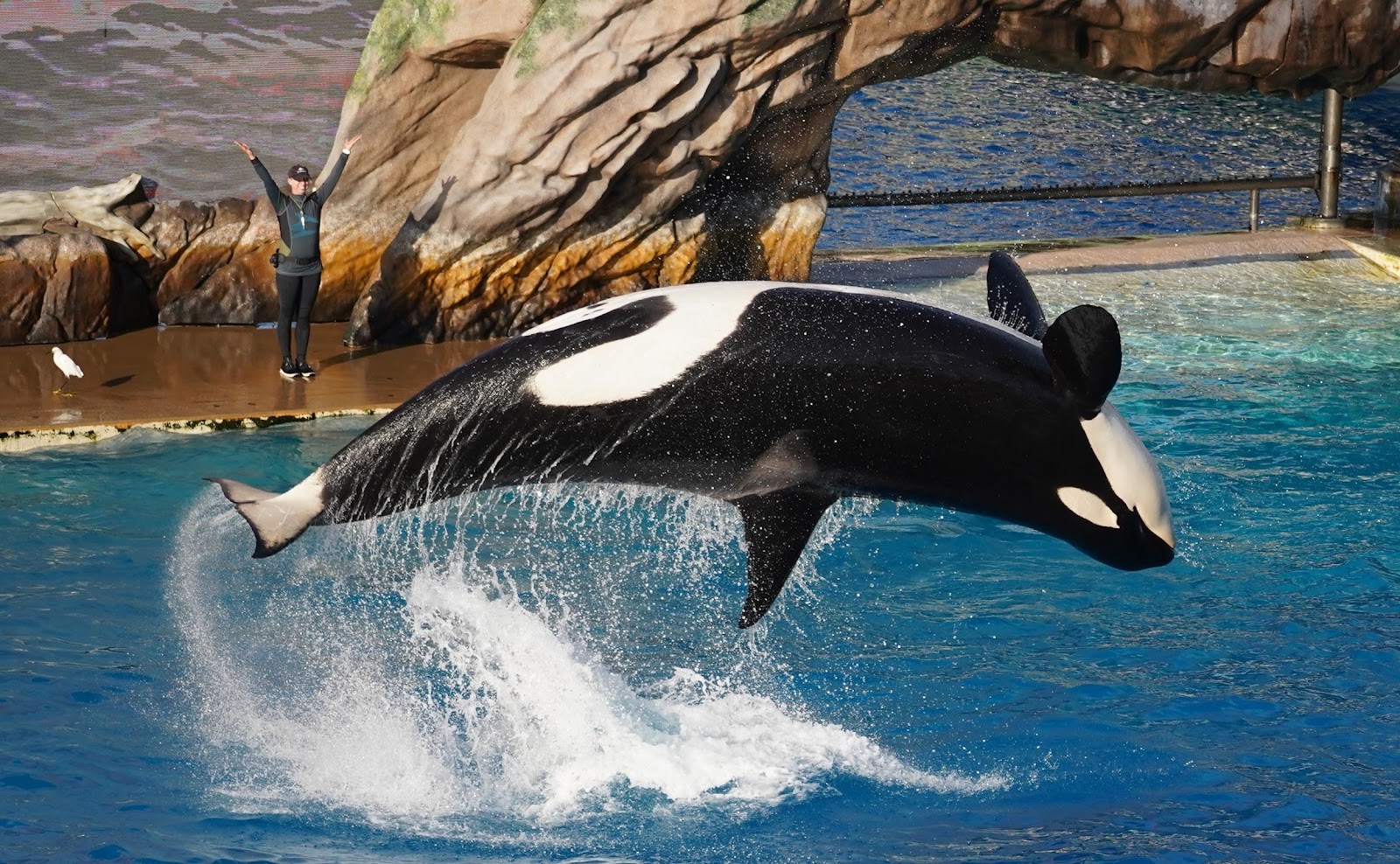The last Orca in Canada which was held in captivity, Kiska, died on Thursday in Canada’s Marineland, a zoo and amusement park located in Niagara Falls. Kiska was 47 years old and was also known as the loneliest whale in the world, as it was the last of the orca species in Canada and was held captive there for the last forty years.
Image Pexels
Reasons behind Kiska’s death
Orca, the largest member of the whale family, also recognized as Killer whales are the species found in small concentrations from polar ice caps to the equator. The black color on the upper body and white color on the lower makes them unique from the other whale species. Many killer whales have been kept in captivity and trained as entertainers, which is increasingly being regarded as unethical. Orcas are creatures with very amazing memories. They maintain close social relations with other groups and teach each other hunting techniques. Their IQ levels are stronger than a fifteen year old human. The Ontario government announced that Kiska has died of a bacterial infection while she was in captivity, which has become an incredulous fact to people. She was 3 years old when she was captured in the North Atlantic Ocean in 1979 and transferred to an aquarium in Iceland. She was then sold to the Marineland along with Keiko, the famous whale from the movie “Free Willy”. Orcas have a gestation period of 15-18 months, the fact that she gave birth to five babies who died at a very young age, shows how much she has survived in isolation. After performing in some shows, Kiska was not seen for more than a decade. She was kept in continued isolation where she used to swim in circles alone. Her health started to deteriorate, even after many health interventions by the park employees and veterinarians, according to Marineland park. In 2021, a video was circulated on social media where Kiska was seen crashing her body and head against the glass screen of the tank. The boredom she started to feel, probably made her harm herself.
Image credit Pixabay
In 2019 the country passed legislation banning any captivity of whales, dolphins, and porpoises ( a group of fully aquatic animals). Their confinement and breeding was banned to a limited place. But the law was inapplicable to the marine animals who were already held in captivity. Kiska “spent her final years isolated in a cramped tank, swimming in endless circles or sometimes floating listlessly.” said People for the Ethical Treatment of Animals (PETA). As Kiska was one of these marine animals who were held captive, she remained in isolation for years. The World Sanctuary Project described her as “the loneliest whale in the world” due to her continued isolation.
Insights into the case of Kiska
The 2019 law of continuous confinement of these marine animals is the worst that has been done to orcas. They have a lifespan of 50-90 years, but due to the captivity, their all activities became limited. Her death provides us with a deep understanding of the greedy and selfish nature of society, which turns animals into a source of entertainment for their own monetary benefits. Many local populations of orcas are getting endangered due to pollution, their captivity and loss of habitat. This is not only resulting in the extinction of species but is also bringing physical and emotional health disturbances to their lives. The root cause is that these animals are treated as a commodity rather than emotional beings. Stricter laws need to be imposed on the trading of animals. Society needs to be alarmed by this situation as a global problem.
If you enjoyed reading our articles, please consider supporting us by buying our geeky merchandise on Instagram.
Alternatively, you could Buy us a coffee on Facebook, Pinterest, Twitter or Medium!






1 comment
[…] offshore wind stations can make noise underwater. Whales and dolphins depend on echolocation for communication and navigation purposes. It is vital to address the issue […]